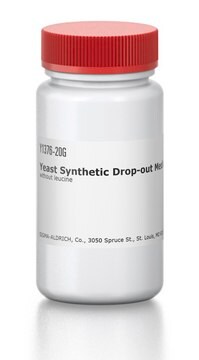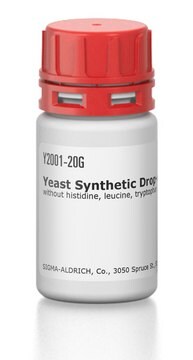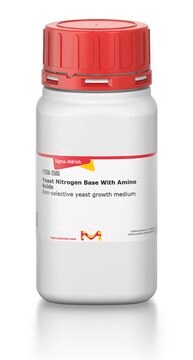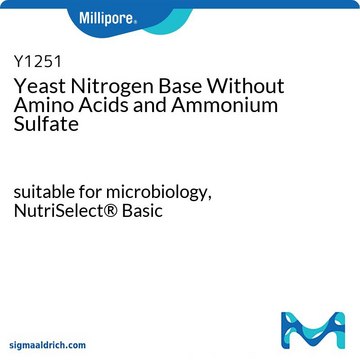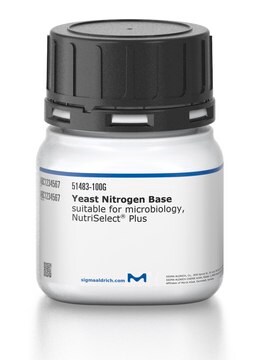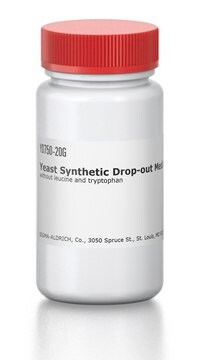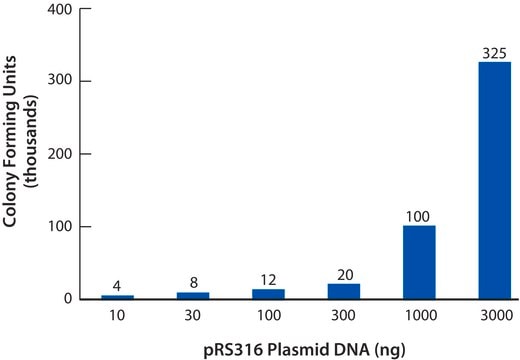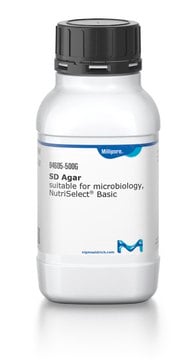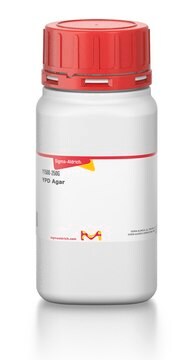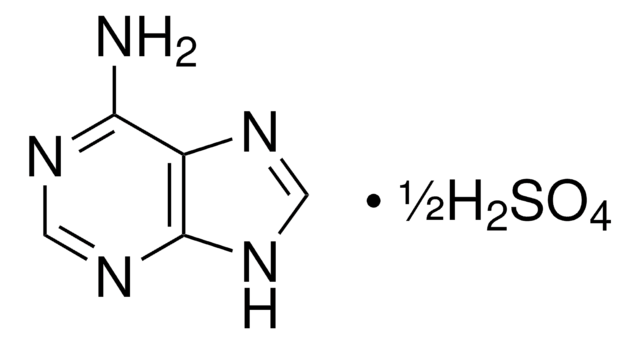Y1501
Yeast Synthetic Drop-out Medium Supplements
without uracil
Synonym(s):
Synthetic drop-out medium for yeast
About This Item
Recommended Products
Looking for similar products? Visit Product Comparison Guide
Application
Components
Amino acids: All standard amino acids are present at a concentration of 76 mg/L except for leucine, which is present at 380 mg/L.
Other nutrients: Adenine (18 mg/L), inositol (76 mg/L), p-aminobenzoic acid (8 mg/L)
Other Notes
Quantity
Storage Class
13 - Non Combustible Solids
wgk_germany
WGK 1
flash_point_f
Not applicable
flash_point_c
Not applicable
ppe
Eyeshields, Gloves, type N95 (US)
Certificates of Analysis (COA)
Search for Certificates of Analysis (COA) by entering the products Lot/Batch Number. Lot and Batch Numbers can be found on a product’s label following the words ‘Lot’ or ‘Batch’.
Already Own This Product?
Find documentation for the products that you have recently purchased in the Document Library.
Customers Also Viewed
Articles
Transformation is the process by which exogenous DNA is introduced into a cell, resulting in a heritable change or genetic modification. This was first reported in Streptococcus pneumoniae by Griffith in 1928. Transforming principle of DNA was demonstrated by Avery et al. in 1944.
Technical Article on yeast media. Yeasts are eukaryotic microorganisms whose genomes have been comprehensively studied and some have been sequenced.
The development of genetic engineering and cloning has opened many possibilities of expression and isolation of heterologous proteins for research purposes. Considerable advances in technology have enabled expression and isolation of recombinant proteins in large scale.
Protocols
Yeasts are considered model systems for eukaryotic studies as they exhibit fast growth and have dispersed cells.
Yeast Drop Out Bulletin. The selection of plasmids in yeast is based on the use of auxotrophic mutant strains, which cannot grow without a specific medium component (an amino acid, purine or pyrimidine). Transformation with a plasmid containing the mutated gene enables the transformant to grow on a medium lacking the required component. Although yeast can grow on a synthetic medium without any amino acids, better yield and growth rate can be achieved on richer media.
Yeasts are considered model systems for eukaryotic studies as they exhibit fast growth and have dispersed cells. Yeast cultures can be grown, maintained, and stored in liquid media or on agar plates using techniques similar to those for bacterial cultures.
Our team of scientists has experience in all areas of research including Life Science, Material Science, Chemical Synthesis, Chromatography, Analytical and many others.
Contact Technical Service